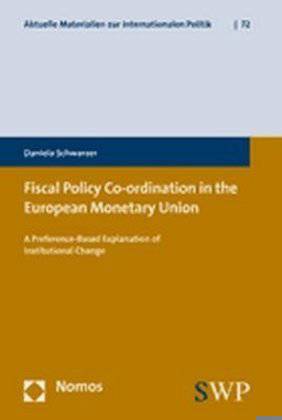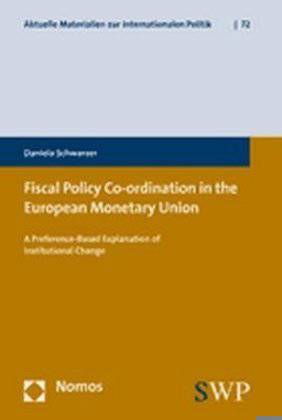
- Afhalen na 1 uur in een winkel met voorraad
- Gratis thuislevering in België vanaf € 30
- Ruim aanbod met 7 miljoen producten
- Afhalen na 1 uur in een winkel met voorraad
- Gratis thuislevering in België vanaf € 30
- Ruim aanbod met 7 miljoen producten
Zoeken
Fiscal Policy Co-ordination in the European Monetary Union
A Preference-Based Explanation of Institutional Change
Daniela Schwarzer
€ 39,45
+ 78 punten
Omschrijving
This book studies the formal creation and the gradual change of the Stability and Growth Pact in the European Monetary Union (EMU). Daniela Schwarzer explains why and how the Pact was pushed through by Germany despite fierce opposition from the majority of member states. She provides a unique in-depth analysis of how a new coalition of member states, again comprising Germany, achieved a creeping reinterpretation of the rules which prepared the way for a formal reform of the Pact in 2005, ten years after its invention. Four case studies show why and how the margin of manoeuvre inherent in the Pact was used to accommodate the preferences of those governments which were in breach of the Pact, and explains how they managed to lower the costs of change.
To analyse these formal and informal dynamics, the study develops a model of institutional change which focuses on the actors, their preferences and the systemic intermediation of national preferences. This model is applicable to other policy fields in the multi-level EU system. By offering new insights into the conflict potential inherent in the interplay of national preferences and European fiscal rules, the book feeds into the recent debate on the necessity and feasibility of a political union in the evolving EMU.
To analyse these formal and informal dynamics, the study develops a model of institutional change which focuses on the actors, their preferences and the systemic intermediation of national preferences. This model is applicable to other policy fields in the multi-level EU system. By offering new insights into the conflict potential inherent in the interplay of national preferences and European fiscal rules, the book feeds into the recent debate on the necessity and feasibility of a political union in the evolving EMU.
Specificaties
Betrokkenen
- Auteur(s):
- Uitgeverij:
Inhoud
- Aantal bladzijden:
- 203
- Taal:
- Engels
- Reeks:
- Reeksnummer:
- nr. 72
Eigenschappen
- Productcode (EAN):
- 9783832924287
- Uitvoering:
- Paperback
- Gewicht:
- 308 g

Alleen bij Standaard Boekhandel
+ 78 punten op je klantenkaart van Standaard Boekhandel
Beoordelingen
We publiceren alleen reviews die voldoen aan de voorwaarden voor reviews. Bekijk onze voorwaarden voor reviews.











